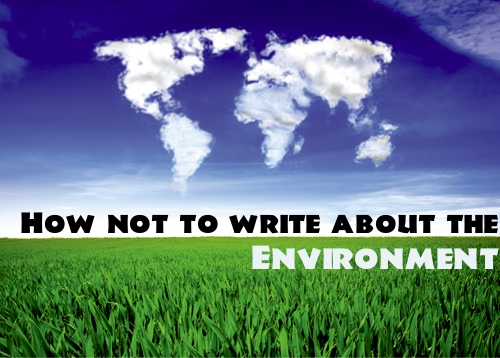The Globe and Mail recently published this article and for the rest of this post, to get much sense out of it, you may have to at least get a sense of what it’s going for. The article inspired me to write my first of what I expect will be a somewhat regular part of this blog, “How not to write about the environment”, a segment focusing on environment articles that do a disservice to the environmental community and also explaining why.
I do not want to come off as attacking the author, as they have seen much more of this world than I have and she has only acted in ways which she thought best. What I do want to talk about is two views that the article espouses, perhaps unintentionally, that I believe are directly counter-productive to the environmental movement.
The first is that environmentalism is this difficult, even arduous, task to undertake and that it in any way should be considered in the same breath as homeopathic or ‘natural’ medicines. I have not done the research to discuss these, but it is certainly no where in the environmentalist handbook that one should not accept an epidural and to include that as a part of one’s ‘environmentalism’ goes against the pro-science stance that environmentalists have fought so hard for. If we as a movement wish to be taken seriously we cannot demand that climate science be accepted while claiming that other accepted scientific truths be ignored.
The second, and far more concerning, is the idea that we as ordinary citizens cannot do anything to help our planet. The contention that todays solutions are concocted by a “group of specialists” and that it is up to them to solve our dilemma is quite possibly the single worst assertion that a progressively minded person could put forward today. The solutions exist. The specialists have done their job. They have given us a world where wind and solar energy are becoming more efficient by the day, the radical changes required to improve our food industry does not rely on ‘specialists’ but rather a simple divestment in harmful practices. The environmental issues that face us today will not be solved by specialists working in a lab, but rather the generalists explaining the issues to our populace and pushing governments to invest in positive change.
The article is defeatist by nature. I understand being frustrated with the lack of progress. I understand the feeling that much of what we do as environmentalists leaves us with little to show for it. But to check yourself out of the game and leave the job to ‘specialists’ at a time when just the opposite is necessary is certainly not the answer. I do not fault the author for writing such a piece, but I certainly do fault the Globe for giving the piece such a foray into social conscience.

